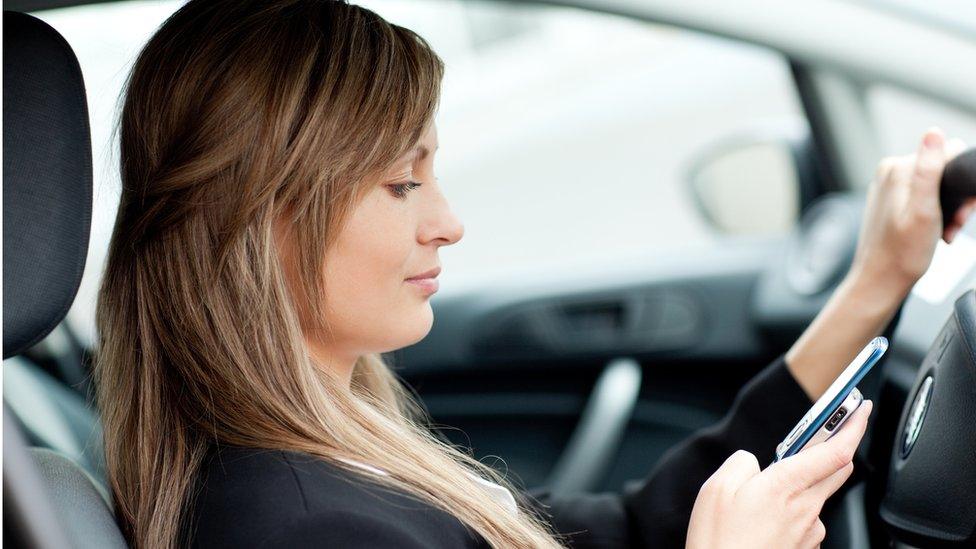Thousands of drivers caught in mobile phone crackdown
- Published
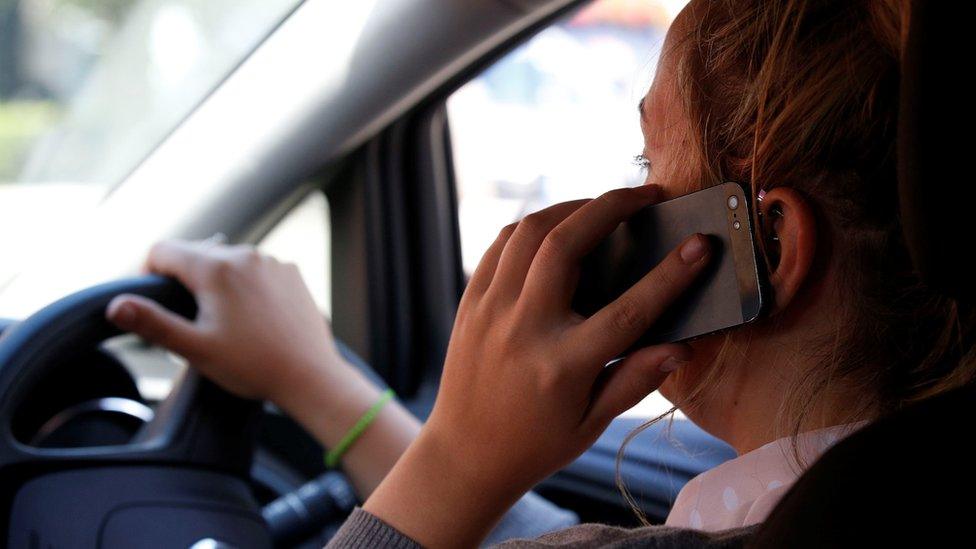
Almost 8,000 drivers were caught using a mobile phone behind the wheel during a week-long crackdown by police.
Officers in England, Wales and Northern Ireland issued more than 40 fines an hour during the campaign in November.
They also issued 68 court summonses, delivered hundreds of verbal warnings and identified 117 other distraction offences such as eating while driving.
Police chiefs said the results were "encouraging" and another week-long campaign was to begin from Monday.
It is illegal to use a handheld phone while driving, with those falling foul of the rules facing penalty points and a fine.
Calls to prevent drivers using phones intensified last year in the wake of several high-profile cases and research indicating that it was widespread.
In October, lorry driver Tomasz Kroker, who killed a mother and three children while distracted by his phone, was jailed for 10 years.
'Socially unacceptable'
Matt Butler, a traffic inspector for Dorset Police, one of the forces involved in the crackdown, told BBC Radio 5 live that it was not yet socially unacceptable to use a mobile phone while driving, but "we will get there".
"Although you may get away with it [using your mobile phone] a few times, sooner or later you are going to have a crash and that crash is going to hurt somebody really badly," he said.
"So it is not just about 'I've been naughty, I've been caught doing something', it's about the end effect and that is what we need people to remember."
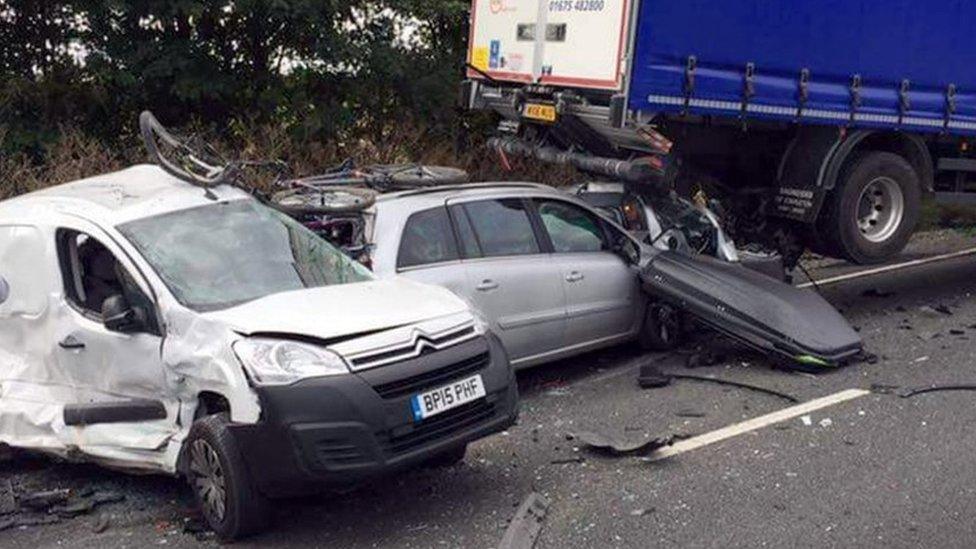
In October, lorry driver Tomasz Kroker, who killed a mother and three children while distracted by his phone, was jailed for 10 years
Previous crackdowns saw 2,690 fines issued in May 2015, 2,276 in September 2015 and 2,323 in May last year.
However, the National Police Chiefs' Council (NPCC) said more forces - 36 in total - had been involved in the latest drive so results were not directly comparable.
Suzette Davenport, the NPCC's lead for roads policing, said the figures "show how effective new tactics and innovative approaches can be".
"Forces will be working to make driving distracted as socially unacceptable as drink-driving through enforcing strong deterrents and powerful messages to make people think twice about their driving habits," she added.
"Officers will continue to use intelligence-led tactics to target police activity and resources and catch repeat offenders."
The Department for Transport announced plans last year to double the punishment for using a mobile phone while driving.
Under new rules expected to be set this year, drivers could face fines of £200 and six penalty points.
This comes alongside pressure by ministers calling for motorists who cause death while on a mobile phone to face tougher sentences.
- Published31 October 2016
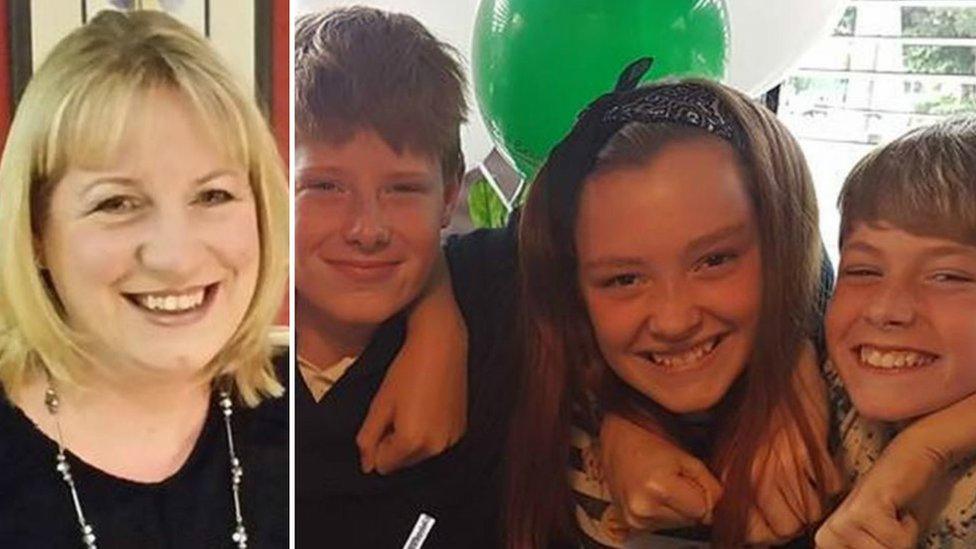
- Published14 November 2016
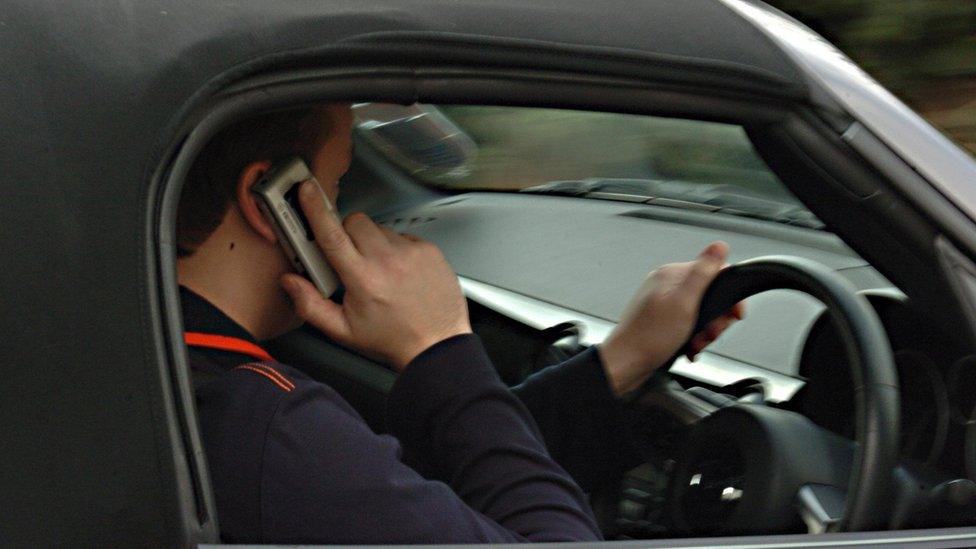
- Published4 December 2016
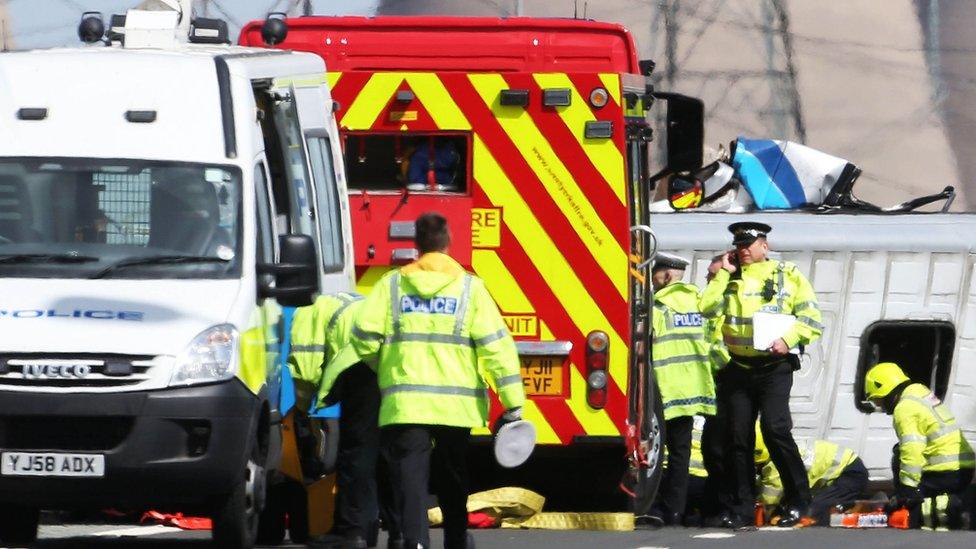
- Published28 September 2016
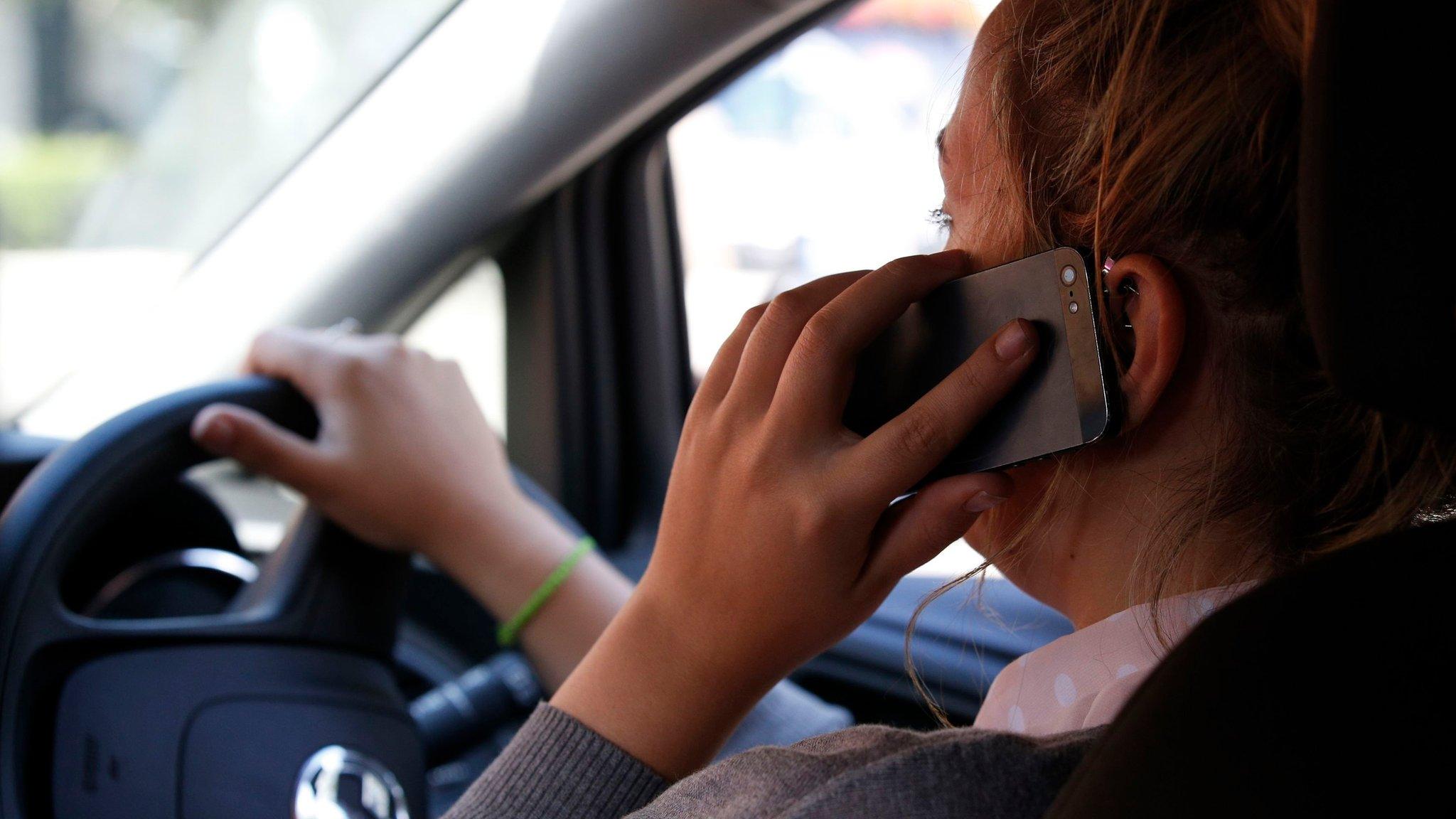
- Published17 September 2016
